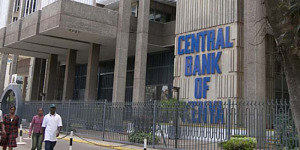Troubles among Kenya's small and medium-sized banks could erode confidence in the country's highly fragmented banking sector, one of the oldest and most developed in sub-Saharan Africa, and dissuade foreign investment, says Fitch Ratings.
Lack of transparency among the smaller banks is a key risk to the banking system and the recent troubles have led to deposit runs, the need to provide extraordinary state support and a tightening of the interbank market, all typical signs of banking system stress. More positively, the leading, systemic Kenyan banks have healthier financial metrics despite the weaker operating environment. In July 2015, we revised the Outlook on Kenya's 'B+' rating to Negative to reflect, among other things, a deterioration in the sovereign's public finances, poor revenue performance, increased infrastructure spending and persistently high current expenditure.
A fragmented banking sector increases the burden on supervisors and makes it difficult for smaller banks to achieve economies of scale to help sustain profitability. Forty-two commercial banks operate in Kenya, a country of 44 million people, compared with Nigeria's 22 for around 180 million inhabitants and South Africa's 15 for 55 million. The top five banks hold about 50% of the market. Foreign-owned banks are prominent among the largest Kenyan institutions.
But the quality of prudential oversight in Kenya compares favourably with sub-Saharan peers. We believe the central bank does not want to force through mergers and acquisitions, but to allow market forces to lead to consolidation. In 2016 we expect the country's largest banks to remain profitable despite rising loan impairment charges, more modest loan growth and high interest rates. Deposit growth remains strong, providing good balance-sheet liquidity for the top banks.
In 2015 the central bank intervened in Imperial Bank and Dubai Bank Kenya. Chase Bank Kenya was put into receivership on 7 April and several senior executives at National Bank of Kenya were sent on leave on 11 April pending investigations into financial accounting practices.
Kenyan regulators have stepped in quickly to provide liquidity support for the entire banking system as required, particularly to smaller banks, which found it difficult to borrow on the interbank markets during periods of heightened stress. Efforts are also being made to strengthen prudential oversight. These include restrictions on new licences, steeper minimum capital requirements and efforts to improve corporate governance. Related-party lending appears to lie at the heart of the recent bank failures and requirements for greater independent board representation have been introduced.







































